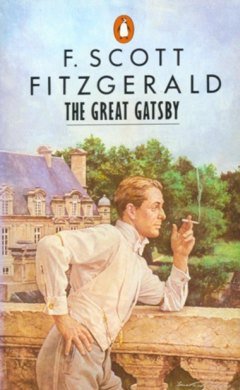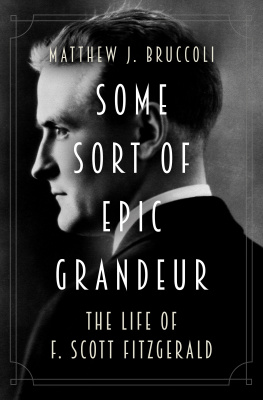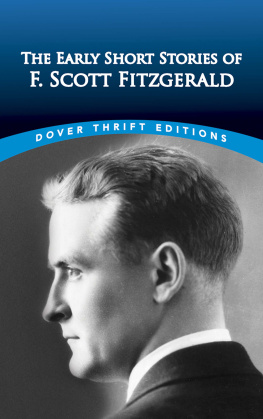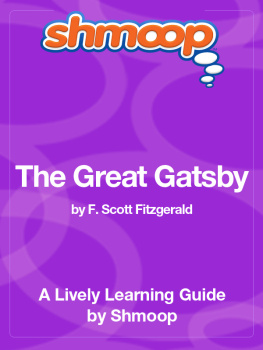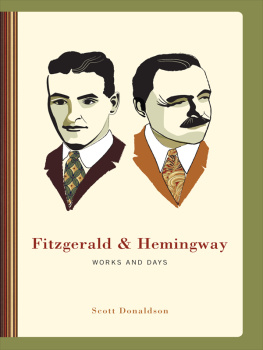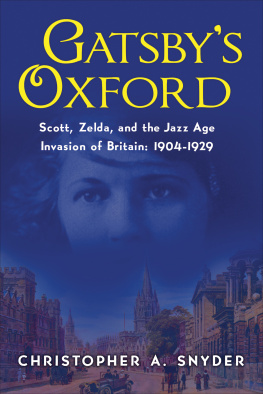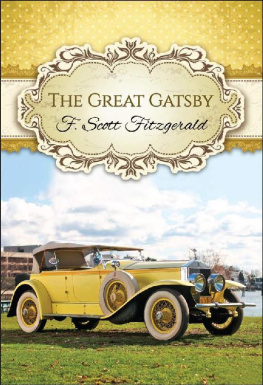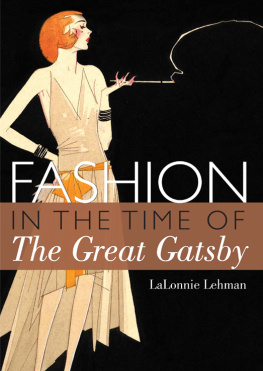Essays on The Great Gatsby |
Is Nick Carraway Gay? Or , Is Daisy Buchanan Slow? |
By Marciano Guerrero |
9/15/2012 |
This study contains two parts. First, we will argue that NYC did not corrupt the characters presented in the novel. Second, well show the writing techniques that F. Scott Fitzgerald employed to depict his characters and their environment. The Great Gatsby will endure simply because F. Scott Fitzgerald created a literary archetype: Jay Gatsby. While many great writers achieve temporary fame, only writers who invent archetypes will endure eternal fame, and in this respect Jay Gatsby will join the pantheon of heroes where we find: Heathcliff, Tarzan, Holly Golightly , Lolita, Mr. Darcy, Gregor Samsa , and Holden Caulfieldamong others. |
TABLE OF CONTENTS
Essay 1 Introduction to the Great Gatsby
Essay 2 Nick Carraway , Narrator: Is He Gay? Or, Is he Bisexual?
Essay 3 Daisy Buchanan : No Golden G irl but a Master of E cholalia and Deceit
Essay 4 Purple Prose and Objective Correlatives in the Great Gatsby
Essay 5 F. Scott Fitzgeralds Style: Carpentry, Pulleys, and Scaffolding
Essay 1 Introduction to the Great Gatsby
While volumes of criticism and book reviews have been written on The Great Gatsby , nowhere have I read any allusions to the fact that the all the main players in the story are morally degraded and of low intelligence or to be charitable: mediocre.
In fact, it is possible that the heroine Daisy Buchanan may well be slow, as shown by her own actions , assertions , and in dialogue . This may be construed as harsh criticism, but in my view it is justifiable criticism which is supported by the text.
T h is study contains two parts. First, we will argue that NYC did not corrupt the characters presented in the novel. Second, well show the writing techniques that F. Scott Fitzgerald employed to depict his characters and their environment.
C ontrary to what many m ight believe, New York City despite all its sins and flawed institutions doesnt corrupt people, but the characters in the novel ( Southerners and Midwesterners) reached the Big Apple as adults with their values already formed, stained , and doomed .
F. Scott Fitzgerald presents a study of ill-gained wealth and ambition through the prism of pathetic c haracters for which one cannot find any socially redeeming values . What T he Great Gatsby portrays is the sordid story of small band of feeble characters engaged in cheating , adultery, deception , and debauchery . The lavish parties Jazz-age style that Jay Gatsby throws to recover his lost illusions and perfidious lover Daisy Buchanan, are all but wild bacchanalians.
When one thinks about of the rest of the nation, we can breathe a sigh of relief to see that the rest of Americans are engaged in productive enterprise, in rebuilding the nation af ter the waste of resources that was the First World War. The sordidness of the story applies , almost in its entirety, to that small band of marginal, misguided, and un savory characters .
The Great Gatsby isnt a book about the spiritual dismemberment of America ( as many have interpreted the book to be ) caused by the roaring 20s and the Great Depression. No such dismemberment ever occurred ; on the contrary, America went to become the leading industrial super power in the world .
T he second part of the study unveils the writing techniques that Scott Fitzgerald employs to capture not only the spirit ual nuances of his characters, but also the setting Manhattan and Long Island where the action transpires.
Yet, the Great Gatsby will endure simply because F. Scott Fitzgerald created a literary archetype: Jay Gatsby. While many great writers achieve temporary fame, only writers who invent archetypes will endure eternal fame , and in this respect Jay Gatsby will join the pantheon of heroes where we find: Heathcliff, Tarzan, Holly Golightly , Lolita, Mr. Darcy, Gregor Samsa , and Holden Caulfieldamong others .
Essay Nick Carraway , Narrator: Is He Gay?
In Ernest Hemingways short story The Killers we experience the objective voice of a disinterested narrator. The sang-froid objectivity of the narrator is gripping in its iciness and detachment; it is as if a robotic camera on wheelsfree of human operatorfollows the events with relentless and faithful objectivity.
F. Scott Fitzgeralds novel The Great Gatsby is by no means objective.
C an we say that relentless and faithful objectivi t y is Nick Carraways motivation in telling us Gatsbys story ? Definitely not. What we find in Nick Carraway s narration is neither objectivity nor detachment , but the very biased point of view of a narrator who is also a protagonist in the storyan unreliable narrator of his own impressions, narrator of hearsay, and all told in novelistic journalism style .
Nick Carraway not only has an interesting story to tell, but he also has an agenda; a laundry list of things to clean up , events to smooth over, and a guilty consciousness to cleanse.
In a similar vein as Augustines, Rousseaus, or even Ben jamin Franklins confessions, Nick exacerbates other peoples crimes and misdemeanors while obscuring and diminishing his own.
Reliable or Unreliable Narrator?
From the outset of the narration, Nick Carraway makes it clear that the story hes about to tell is a very personal story, and that he is going to be a protagonist. So, with these words he begins mentioning himself :
In my younger and more vulnerable years
Nicks story is about himself and about young people coming of age, characters who at are in the midst of finding their own identity, groping for goals and a more certain future. It is a generational story in which ambitious Dough Boys having returned from fighting a world war vie for a prominent position under the sun, vying for a spot not in the tedium of poverty or disenchantment , but for a share of splendor in wealth and love.
Although Nick make s the calculated decision to come East to pursue a career in Wall Street, his heart moves him in a different direction; his heart is in literature, and he lets us know w hat his intentions are : I was rather literary in collegeone year I wrote a series of very solemn and obvious editorials for the Yale News and now I was going to bring back all such things into my life and become again that most limited of all spe cialists, the well rounded man ( Chapter 1, ).
Having attended Yale University, he is justified in calling himself a well rounded man who is fully equipped by experience, education, and talent to become a writer , a literary man.
As he commences the narrative, he even indulges in the pleasure of even knowing the title of his book: Only Gatsby, the man who gives his name to this bo ok, was exempt from my reaction ( Chapter 1, 2).
Nick, the writer, also engages in moments of meta-narration.
When in the second book of Cervantes Don Quixote , the hero learns that he is the subject of spurious adventures by a spurious author, we can only smile and enjoy the pleasures of meta-narration. Similarly, Nick Carraway also engages himself in bits of meta-narration as when we read that he is reviewing his work as he progresses with the writing:
Reading over what I have written so far, I see I have given the impression that he events of three nights several weeks apart were all that absorbed me. On the contrary, they were merely casual events in a crowded summer, and, until much later, they absorbed me infinitely less than my personal affairs ( Chapter 3, 60 ).
Indeed they were but mere casual events, yet very much intertwined with his own personal life. Though Nick presents Jay Gat s by s life as the main thread of the novel , h e weaves his own autobiographical strands of data into the fabric of the story .


